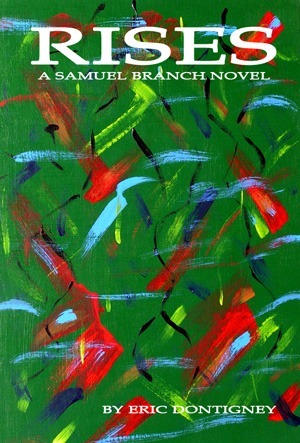Eric Dontigney's Blog, page 8
March 15, 2014
Reading, Writing and Suspension of Disbelief

photo credit: rachel sian via photopin cc
Anyone who knows me for a while discovers that I’m a big Stephen King fan. There are large bookcases in my home and there are two full shelves devoted entirely to Stephen King books in hardcover, trade paperback and mass market versions. It’s not a complete collection by any stretch of the imagination, but I probably own something in the neighborhood of 20-30 King novels and I’ve read more.
In my opinion, King is one of those authors who get consistently underrated. Not in terms of sales, obviously, since readers clearly love the guy. I mean in terms of acknowledgement of his actual talent. The Dark Tower series, for example, is a huge, sprawling epic that, if it got its due, would be classified in the same category as the Lord of the Rings. This is not me being hyperbolic, I believe that whole heartedly.
So, it was only natural for me to pick up a copy of 11/22/63 from the library. Then, an odd thing happened. I read, perhaps, the first 100 pages and discovered that I was not invested in the story. It wasn’t that the novel lacked the usual Stephen King magic. If anything, the power of King’s prose on a line by line basis has never been stronger. He is an absolute genius at giving us convincing everyman or everywoman characters that feel alive.
No, the magic was there. It was the story that didn’t resonate with me. What I couldn’t figure out was why the story didn’t resonate with me. It was only after my mother, who had read the book to completion, made an observation about her relationship with the time period that the truth became apparent. I just don’t care that much about John F. Kennedy.
I recognize that he is a historically important figure, but I was never invested in the “Camelot” myth the way prior generations were. I know Kennedy not as some kind of crown prince, but as the deeply flawed person that history has subsequently revealed. He was, in the end, just a man, almost certainly a lousy husband, and a questionably effective politician.
The basic conceit of the novel, at least up to the point that I read, is that saving Kennedy from assassination would make the world a better place. This critical point is where the novel loses me. I don’t find that claim credible. Would it have made the world a better place for his family? I expect it would have, at least in some respects. Would it have made the entire world a better place? I have my doubts.
What we bump up against here is the basic problem all writers face when developing a narrative. Can we craft it well enough to generate suspension of disbelief? Sometimes the problem is massive, as is the case with most fantasy novels set somewhere other than contemporary Earth. You must build a world that is convincing on its own, rather than one that borrows on the reality around you.
In other cases, the suspension of disbelief is smaller. It’s about building a premise that readers can buy into. In this instance, King failed to do that for me. I suspect that for me and most people in my generation, the assassination of JFK is an abstract. Whatever influence it has had on our lives is implicit and, as such, has no emotional resonance. We never believed in JFK and, because we never believed in him, we don’t believe in the efficacy of changing the outcome of his assassination.
The interesting question, at this point, is whether the novel isn’t a good novel or if it just isn’t a good novel for me/people like me. I don’t believe that 11/22/63 is a bad novel. I think it’s a bad novel for people like me. The lack of the appropriate social-emotional context makes it inaccessible and, as such, not compelling. Will this stop me from picking up King’s other books? Not a chance.
I’ve written this without finishing 11/22/63 and, because I have read so much King, I suspect that the basic conceit doesn’t play out. However, my inability to suspend disbelief means that I will probably never know for sure. Or I’ll read a summary of the book to find out. There are a couple of object lessons for me, and other authors, to take away from this.
The first object lesson: Craft your premise with care.
Stephen King is very good at this and he lost me with a premise that I didn’t find credible.
The second object lesson: No matter how carefully you craft your premise there will always be readers that won’t buy it.
It’s unavoidable. Not every story is going to speak to every reader. The people reading Gabriel Garcia Marquez are probably not, on the whole, reading Jim Butcher and very likely because they can’t buy the basic premise.
Suspension of disbelief, which is so critical to fiction of all kinds, is also very fragile. It doesn’t take much to dispel that dream fog in which suspension of disbelief lives. A bad special effect, poorly written dialogue, or a premise that doesn’t feel credible can all do it. So go forth, craft with care to give suspension of disbelief its best chance, and be okay with the fact that it won’t work for everyone
March 7, 2014
New & Free & Here- A Samuel Branch Short Story
I know it’s been ages and ages, more than a year, since you guys have seen any new fiction from me. Well, as promised earlier this week, I’m about to change that. Please find below, the all new Sam Branch short story, Becoming. Enjoy!
For Kindle users: Becoming (mobi)
For pretty much all other Ereaders: Becoming (ePub)
For those without an Ereader: Becoming (PDF)
February 4, 2014
The Periodic Update Thing that I Do

photo credit: Daniel*1977 via photopin cc
Since I always have a lot of irons in the fire at any given time, some of which I mention on here or on other social media, some of which I don’t, it becomes necessary to provide the occasional update on my various and sundry projects. To that end, here are the updates:
The Big Project
Okay, the big project, the one I get asked about a lot, is the new Sam Branch novel. The novel is not dead and not even close to dead. It’s just taking a lot more time and gestation that I ever imagined it would. It is long ladies and gents. I mean it’s really long. Like 400 typewritten pages long and growing. Fortunately, I have a pretty clear sense now of what needs to happen to finish it, which I was still pretty hazy about 50 pages ago. I swear I’m closing in on done.
The Website
Many months ago, I proclaimed that the Sam Branch website was going to get updated. I meant it, despite no visible evidence that it was happening. There was stuff and things and life that got in the way. The death of a web designer’s computer, for example, and me working on the new novel and painting the new cover and the work that pays the bills. You know, life and stuff and things. The moment is upon us, however. I got the new files and installed them on the server. There is still one or two glitches to work out, but you can go and see the almost finished, shiny new version of the site here.
Audiobook?
I also mentioned, a very long time ago, that I was recording an audiobook version of the first Sam Branch novel, Falls. The project is not dead, either, I simply refer you back to the aforementioned life and stuff and things. It will happen. The notion has taken hold in my brain again and I’ll be making a concerted effort to record 1-2 chapters a week until it’s done. I may even post a few preview chapters for your listening pleasure, so keep your eyes open.
Short Stories
As I mentioned in a previous post about fiction and voice, I’ve been working on some short fiction. One of my goals for 2014 is to place 3 short stories in magazines. To that end, when my brain needs a break from novel writing, I work on short stories. Some of them are partially written. Some of them are finished, but not edited. Some of them are out for submission. There is one, however, that will be coming to you very soon. It’s a little prequel to the new Sam Branch novel and I’m expecting to make it available to you all around the end of the February.
So there you have it, some of the bigger things I’ve got going on. Now, as a little treat, I give you a link to Neil Gaiman reading Green Eggs and Ham. Why? Because it’s Neil Gaiman reading Green Eggs and Ham. Seriously, do you need a better reason?
January 20, 2014
In Which I Discuss Fiction and the Peculiar Consistency of Voice

photo credit: stephenscottjenkins via photopin cc
A very long time ago, a lifetime ago it feels some days, I got it into my head that I was going to be a writer. Not merely a writer, I was going to be a writer of short stories and novels. So, I wrote short stories and started novels, most of which were truly awful, unoriginal, or plagued with the kinds of mistakes that all writers seem to make in the early days. I submitted the short stories to various markets. In most cases, I received the dreaded form-letter rejection and I still have all of them tucked away in a folder somewhere. Every once in a while, though, I found myself getting a scrawled note of encouragement from an editor.
In those early days, I didn’t recognize the significance of those scrawled notes. Intellectually, I knew they meant that I was getting somewhere. I knew it, but I didn’t feel it. I felt the rejection, of course. The fragile confidence of youth always recognizes rejection and I wrote less. Then life began to intervene. There were deaths in the family, college, relationships and I wrote less and less and less. Until, finally, I wasn’t writing fiction at all.
It was years before I turned back to writing fiction and I went big. I started with a novel and, by and large, have stuck with it since then. It’s been a hobby, a thing done between the paying gigs, and that seemed okay by me. Then, a funny thing happened. The holidays rolled around. Western society all but ground to a halt and I had some extra time on my hands. I had a lot of extra time on my hands. So, I wrote a few short stories. These were ideas that didn’t have a place in my novels, but persisted in reminding me they existed.
I discovered two things as a result of that little experiment. The first thing I discovered or, perhaps, remembered is the correct word, is that I like writing short stories. It’s fun. It’s also demanding. Writing short fiction forces you to excise all of those extra characters and subplots and interesting tidbits you can squeeze into a novel. The second thing I discovered is that voice is shockingly consistent.
In the process of looking for something else, I found an old short story I had written and submitted in the bygone days of 2003, buried in the depths of my email. I pulled the story out of the email and reformatted it into something readable. Then I read it. It wasn’t a great story. I wouldn’t even call it a good story, though it had the potential to be a not bad story. The interesting part about it, however, was that as I read it, I recognized my own writer’s voice in it. I could imagine writing that story, with very similar language, today. There was something in the cadence, in the word choice, in the particulars of description that I recognized as me.
It was like hearing a decade-old echo from a younger me that I barely remember sometimes. What I do remember about that much younger version of myself isn’t terribly flattering. I wasn’t an awful person, at least, not any more so than all 20-somethings are raging, self-involved psychopaths that substitute hubris for self-confidence. I’ve just reached a point in life where I felt like that person and the person I am now didn’t share anything. Then I read that story and realized that I did share something with my younger self. I shared a voice. I shared a sense of how language can be employed for effect. I could connect the writer I am now to the writer I was then and, by proxy, the person I am now to the person I was then.
It was a strange realization that voice, less polished and precise, perhaps, but still the same in its essentials, was so consistent. I just assumed that my writing had evolved in the same way that I had evolved as a person. The funny thing is that I was right, but not in the way I imagined I was right. The hardest, sharpest edges that made me problematic as a person were worn down by time and experience. The roughest, most flagrant errors that made my writing problematic were corrected by the same thing. It wasn’t evolution I was experiencing, but a process of refinement. The impurities, the flaws, the blemishes were being burned away, slowly, so very slowly, but they were exiting the picture.
The process isn’t over, it’s never really over until you die, but I can see it now. I haven’t become a different person or a different writer. I have become and am still becoming a purer version of both and that’s okay by me.
January 16, 2014
Why You Should Care About the Open Internet

photo credit: Mark Coggins via photopin cc
The DC Circuit Court of Appeals recently struck down the Open Internet Order. The Open Internet Order was a set of rules put in place by the FCC in late 2010 that, broadly speaking, prevented broadband service providers from bottlenecking the bandwidth available to certain types of content, services and sites, such as Netflix and Youtube. The surface level reason that broadband providers give for wanting those rules gone is that it would allow them to develop different pricing plans for websites and services with high bandwidth demand, as noted in Brian Fung’s blog at The Washington Post.
That rationale, while plausible, is also not the whole story. With the Open Internet Order out of the way, the entire notion of net neutrality goes with it. This opens the door for broadband service providers to decide for you what kind of content you can or can’t look at online, by choking the available bandwidth to sites, content and services your service provider doesn’t like or doesn’t own. That is a thought that should send a chill down everyone’s spine.
Every writer, artist, musician, small business owner and entrepreneur should be squarely and fervently against the loss of net neutrality, regardless of political leanings. While the conservative spin machine will no doubt tout this as a victory over big government overreach and a victory for free market capitalism, it is neither.
The Open Internet Order was an example, though poorly executed, of the government protecting small businesses, startups, and entrepreneurs from monopolistic action on the part of massive corporations, such as Verizon. That is not government overreach, but government acting on behalf of citizens and, ironically, in protection of a real free market system. Net neutrality helps to ensure an, if not level, than more level playing field for new business ideas and services.
Just as important for those engaged in creative activities, such as writing, art and music, the loss of the Open Internet Order sets the stage for an unprecedented level of corporate censorship. Imagine a world in which a corporation can decide whether or not your author website, or band website, or photography website is worthy of receiving bandwidth. Is that a world you want to live in?
The internet is an essential element in business and a true marketplace of ideas. It provides a forum for those without a voice and an infrastructure for innovation. No handful of corporations should be able to exercise the level of control over that forum and infrastructure which the loss of the Open Internet Order now gives them. It’s bad for business. It’s bad for creative expression. It’s bad for freedom.
January 6, 2014
Official Reveal – Cover Art for the New Sam Branch Novel
I’m going to take a quick break from the usual today for something near and dear to my heart. As many of you know, I’m in the midst of writing the third book in my Samuel Branch series of novels. As I wind down into the final stretch of the first draft, I decided it was time to paint/develop the new cover art, both as a practical concern and as a way to reward my patient readers. So, without further ado, I present you with the cover for “Rises: A Samuel Branch Novel.”

Copyright 2014 Eric Dontigney
For those of you not familiar with my Samuel Branch books, check out my books page or find them over on Amazon here and here.
January 3, 2014
Forget the New Year’s Resolutions – Set Goals Instead

photo credit: photosteve101 via photopin cc
Oh yes, kids, it’s that glorious time of year when we stayed up late to watch a disco ball drop and make outlandish promises to ourselves about all the things we’re going to do differently…this year. Uh huh. Right. Sure that’s how it’s going to happen. Like, somehow, wishing on a falling disco ball is going to magically make us stop having all those habits that prevent us from making changes the rest of the time.
Therein rests the problem with New Year’s resolutions. They aren’t resolutions. They aren’t promises. They are not vows or oaths or covenants or contracts. They have all the substance of a wish you made while chucking pennies into a fountain and about as much staying power. So, this year, I recommend that you forgot those resolutions you made and substitute in some real goals.
What’s the difference? In my experience, the main difference is that goals reflect some cognizance of your own limitations and failings and include a plan for dealing with those things. For example, a common New Year’s resolution is something like, “I’m going to start getting up early and working out to get in shape.”
This may have sounded good to you and the people you were standing with on New Year’s night, but if you find it next to impossible to drag yourself out of bed to go to work, there isn’t a chance that you’ve got the self-discipline to get up even earlier to work out. Should you quit on the idea of working out? Of course you shouldn’t, but you need to plan for it to happen at a time and place you can actually show up for.
You should forget that phrase “get in shape” or any equally nebulous phrase you used in your resolutions to describe something different. Like other nebulous phrases, “get in shape,” doesn’t mean anything in practical terms. Olympic athletes are in shape. So is the guy down the block who runs a couple miles 4 days a week.
Figure out what your goal means to you in precise terms and then figure out how to make that happen. If “get in shape” means lose 15 pounds or complete a 5K or build a six-pack, those are specific things you can achieve. You can set benchmarks and timetables and consult with experts to make that happen.
Another common one is “make more money.” This is also nebulous. How much is “more?” Ten percent? Twice as much? A million dollars? Having financial goals, particularly when they tie-in to professional goals, can be an excellent motivator, but only if you pin down specifics. Is it reasonably possible for you to double your income in your current profession/position…at least, legally? If not, you need to set your sights lower or find another avenue for bringing in additional income.
While wishing on falling disco balls might be fun, it isn’t really an effective methodology for change. It’s a wish. If what you want is change in your life, get very specific about what you’re after, accommodate your own failings to make it feasible, and create benchmarks that make sense. Goal setting isn’t wishing, it’s planning for success.
December 19, 2013
Writing Actionable Content

photo credit: striatic via photopin cc
(Caveat: This one is mostly for freelance writers and those developing content aimed at professionals.)
Writing actionable content is a radically different thing than writing informational or narrative content. Narrative content can be languid and take its time getting where it’s going. Often, it is the slower pace and length that gives narrative its extraordinary power. Informational content is often, though not always by necessity, dry and slow. It aims to inform, to teach, to explicate and, mostly, to get factual content from the page to your brain. Actionable content, if it followed either of those approaches would fail spectacularly.
Tell Them to Do Something
If you’re writing for an online audience, you get exactly two paragraphs worth of tolerance. Your introductory paragraph and your conclusion can…note that I only say CAN…lack in a thing that the reader can do. After that, you must forgo narrative and pure information and tell the reader to do X, Y or Z. You notice that I just followed my own rule of actionable content. In the second paragraph, I tell you to tell your reader something they can do.
Make the Action Explicit
It’s not enough for you to just put a link into a sentence and assume the reader will click on it. Some will and some won’t. The link is an implicit call to action. If you want your reader to do something, make the call to action explicit. Say, “Click on this link to Basecamp to learn about their project management software,” or “Write out your top ten concerns on a piece of paper in order of importance.” The difference here is the same difference as your spouse saying, “Remember that the kids have practice after school tomorrow,” and “You need to pick the kids up from practice after school tomorrow.”
Keep It Simple
Unless you’re writing a tutorial for something, keep the actions simple. Giving someone 47 steps to follow is generally pointless, because odds are they won’t ever get past step five. Remember, you don’t need to detail everything and can’t ever really cover everything in a blog post or article that only runs 400-700 words. If you’re talking about complex processes, give the first step and then point them to a resource that details the more complex process or at least expands on it. For example, if you want more information about writing actionable content, you should read Amanda Gallucci’s excellent blog post – “Transforming Content from Lifeless to Actionable.”
December 10, 2013
5 Ways to Not Suck at Writing

Image courtesy of anankkml/ FreeDigitalPhotos.net
Some new writers buy into the idea that, if they just sit down and start, inspiration will somehow lead to great writing. Wrong! That might happen one time out of every 100 attempts you make at writing, if you’re lucky. If you’re not lucky, inspired writing might happen one time out of every 1000 attempts. The “sit down and let inspiration lead” approach almost always ends with one thing: writing that sucks. Good writing, on the other hand, takes a combination of work and skills. Here are five ways for you not to suck at writing.
Organize Your Thoughts!
That idea you have for an essay, article or story isn’t enough. You need to take that idea and break it down into pieces. Spend some time and figure out what things you must talk about to make your final draft coherent. Some people favor outlines for this process and, for new writers in particular, this probably should be your approach. Outlining forces you to really look at how much effort and space you’ll need to complete your piece as you first envisioned it.
Pro tip: Your initial idea is almost always too big. Cutting the idea down lets you talk about specifics, which leads to better writing.
Don’t Fall in Love with Your First Idea
Your first idea is just that: your first idea. Unlike races, being the first idea doesn’t come with a prize. Ideas can be bad. They can be impossible to follow through on. They can be the wrong idea for what you need to write. Don’t quit on trying to come up with ideas after you get that first one. Think of the first idea as a trial run or a way to warm up your imagination before you get down to the serious business of generating ideas.
Pro tip: Looking at the way other people have handled a similar topic can help to spark your own thinking, but make sure you don’t unintentionally steal their idea.
Stop Editing While You Write Your First Draft
Writing your first draft has one, and only one, purpose. Its purpose is to get the big ideas down on paper. Editing while you write your first draft does nothing but tack on extra writing time. No matter how much editing you do while you write that first draft, you will always need to revise and edit it. You will. Accept it. No one gets it right the first time.
Pro tip: Stopping to revise also leads to stilted writing because it disrupts the flow of your thinking. Writing that flows well is better writing.
Stop Guessing about Grammar and Punctuation
Remember when that elementary or middle school teacher told you to put a comma into a sentence wherever you would pause? It was bad advice then and it’s bad advice now, because it means you’re guessing. If you don’t know when it’s appropriate to use a comma, or a colon, or you scratch your head every time people talk about subordinate and independent clauses, it’s time to learn. Get a style guide. They explain those rules, at great length and in sometimes excruciating detail. If you’re a student, go and talk to the English department staff. Ask questions. You can also make use of the Purdue Online Writing Lab (OWL), which offers extremely comprehensive guidance on most things writing-related.
Pro tip: I write for a living and I still consult style guides and ask experts to clarify usages I’m not clear on. Knowing the rules makes your writing better. Period.
Don’t Use Blogs as Your Examples for Good Writing
Blog posts and, in point of fact, much of the writing you find on the Internet is writing that sucks. Blog posts, in particular, offer very poor examples because blog writing has its own conventions and some of those conventions violate the normal rules of good writing. Of course, some bloggers break those rules on purpose and with a goal in mind, like making the post easier to read on screen, and other bloggers never knew the rules of good writing in the first place. In either case, don’t look to blogs to show you how to write well.
Pro tip: You should read high quality newspapers and magazines, such as The New York Times and The Atlantic, and high quality books, such as the ones found in this Salon.com “The Best Books of the Decade” article, to find your examples of good writing.
It’s easy to produce writing that sucks. People do it every day in online forums, comment sections and amateur articles. Good writing isn’t easy to produce. It takes time and effort. You need to be willing to organize your thoughts, reject bad ideas, and learn the basics of grammar and punctuation. If you are willing to put in the time, read good writing and accept the reality that you’ll need more than one draft, good writing is within your reach.
Note: This post may be used in educational settings without seeking permission, as long as it is properly attributed to me.
December 2, 2013
Being a Professional Writer When Christmas is Coming

Image courtesy of imagerymajestic/ FreeDigitalPhotos.net
The grand tradition of Thanksgiving has come and gone. If you’re like me, you probably ate about three times as much as was healthy. After which, you stared around in a gluttony stupor and vaguely wondered why you couldn’t find the energy to do anything. It’s been a few days, though, and most of us have probably shaken off the aftereffects of our collective gorging. Now we find ourselves at an interesting time of year.
Despite what retailers would have us think, Christmas isn’t here yet. This is that awkward, pre-Christmas period where everything seems to be on hold while we wait for the arrival of the holiday. As a writer, it can be easy to get a little lazy at this time of year.
You’re surrounded by food of a decidedly sugary persuasion. You’ve got a house or an apartment that needs decorating and maybe some kids who are lobbing Christmas lists at you; lists that they filled with this year’s must have (read deathmatch in the aisles) items. Your family starts calling you and visits must be planned or avoided.
It’s hectic.
It’s time consuming.
It seems more immediately important.
Bu the truth is…
It’s not more important than your writing, especially for those of you who write for a living.
This time of year is often a barren stretch for professional writers. Clients are going out of town. Budgets for things like buying freelance content are starting to wear thin. The people you work for are just plain distracted.
What that means for a professional writer is that early-mid December is a stretch where you need to be devoting more time and energy to writing and business, not less. You’re probably going to have put in extra time to pin down clients on work, send extra reminders about unpaid invoices, and work twice as hard to drum up new business.
This doesn’t mean you can neglect obligations to family and friends, but it does mean you’ll need to manage your time more efficiently and stick to your guns about your hours. Tell your extended family when you’re available to talk and make it clear that calls during working hours need to be emergencies/highly important. Remember, this is your job and the people around you should respect that fact as much as you respect the fact that they have working hours.
Why should you do all of this? While Christmas might be fun and festive, January is right around the corner. The last thing you want to be doing in early January is trying to drum up work or, worse, killing yourself trying to do all the work you flaked on in December.



